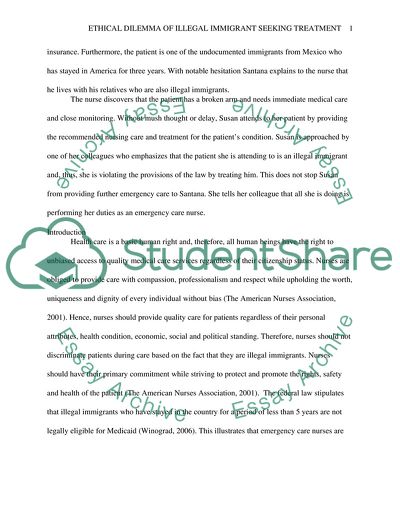Cite this document
(Ethical Dilemma of Illegal Immigrant Seeking Treatment Case Study Example | Topics and Well Written Essays - 1750 words, n.d.)
Ethical Dilemma of Illegal Immigrant Seeking Treatment Case Study Example | Topics and Well Written Essays - 1750 words. https://studentshare.org/ethics/1767690-ethical-dilemma-of-illegal-immigrant-seeking-treatment
Ethical Dilemma of Illegal Immigrant Seeking Treatment Case Study Example | Topics and Well Written Essays - 1750 words. https://studentshare.org/ethics/1767690-ethical-dilemma-of-illegal-immigrant-seeking-treatment
(Ethical Dilemma of Illegal Immigrant Seeking Treatment Case Study Example | Topics and Well Written Essays - 1750 Words)
Ethical Dilemma of Illegal Immigrant Seeking Treatment Case Study Example | Topics and Well Written Essays - 1750 Words. https://studentshare.org/ethics/1767690-ethical-dilemma-of-illegal-immigrant-seeking-treatment.
Ethical Dilemma of Illegal Immigrant Seeking Treatment Case Study Example | Topics and Well Written Essays - 1750 Words. https://studentshare.org/ethics/1767690-ethical-dilemma-of-illegal-immigrant-seeking-treatment.
“Ethical Dilemma of Illegal Immigrant Seeking Treatment Case Study Example | Topics and Well Written Essays - 1750 Words”. https://studentshare.org/ethics/1767690-ethical-dilemma-of-illegal-immigrant-seeking-treatment.


